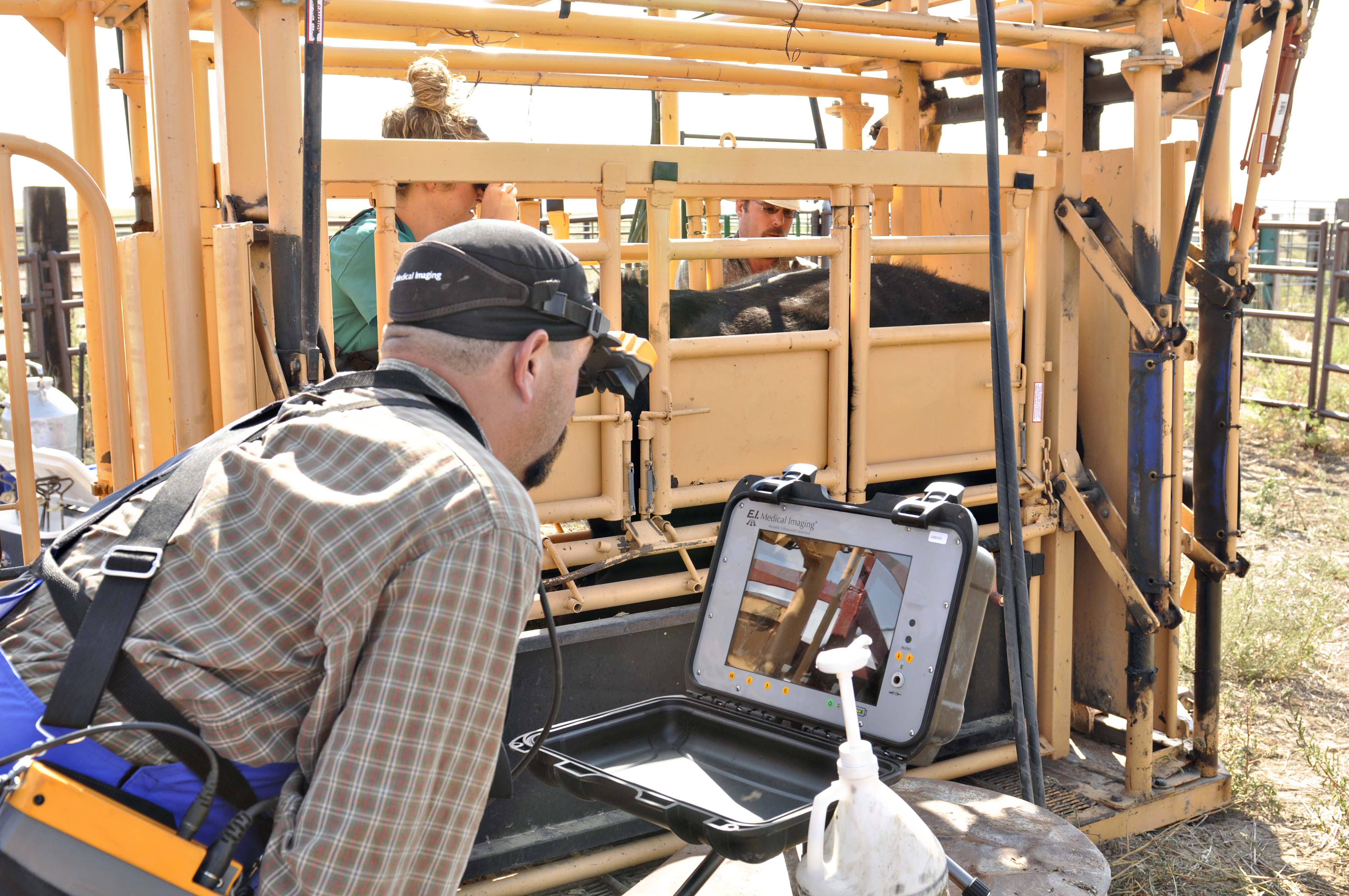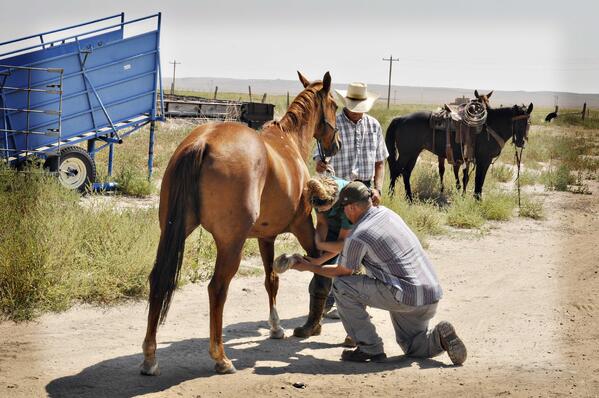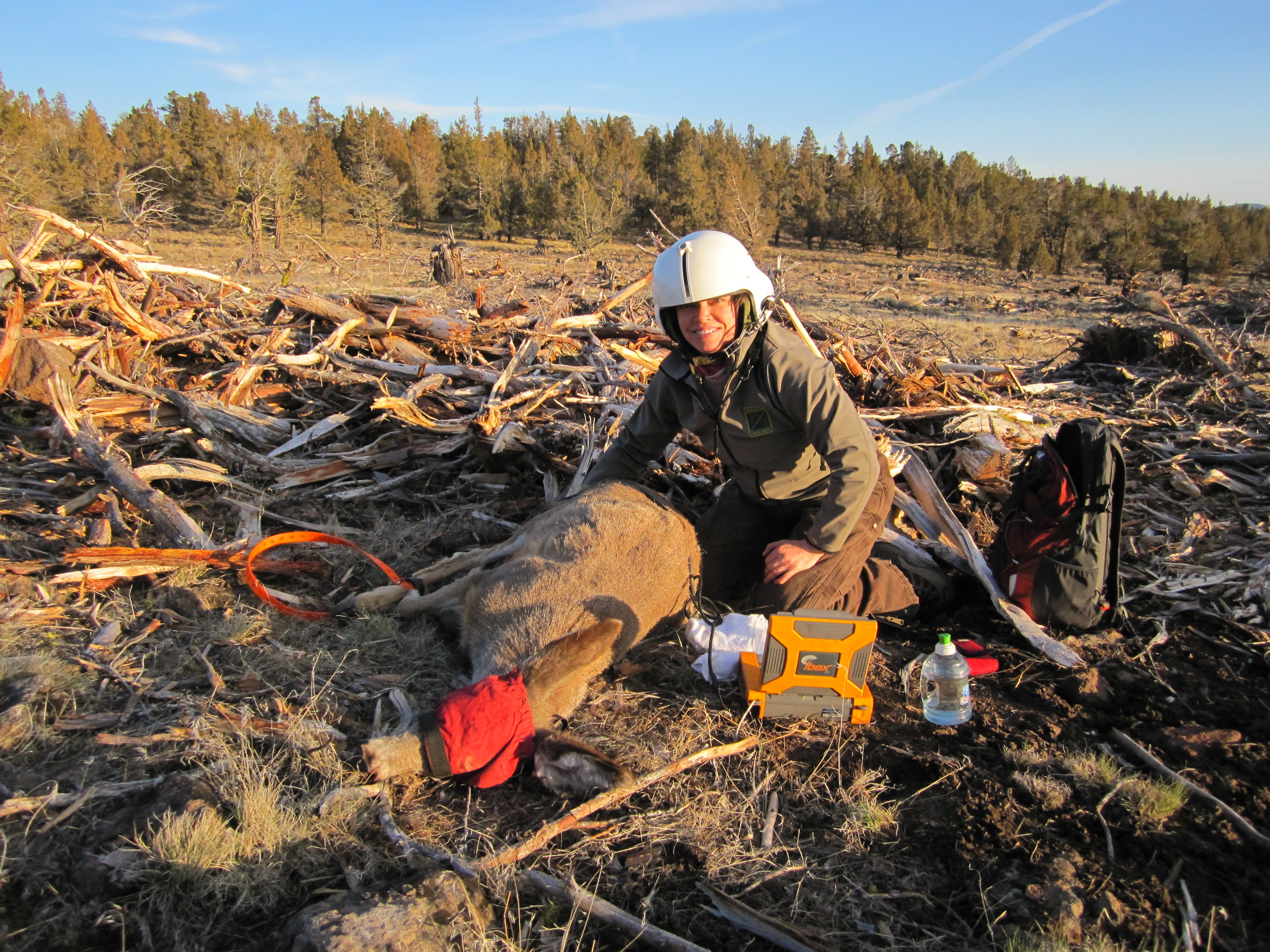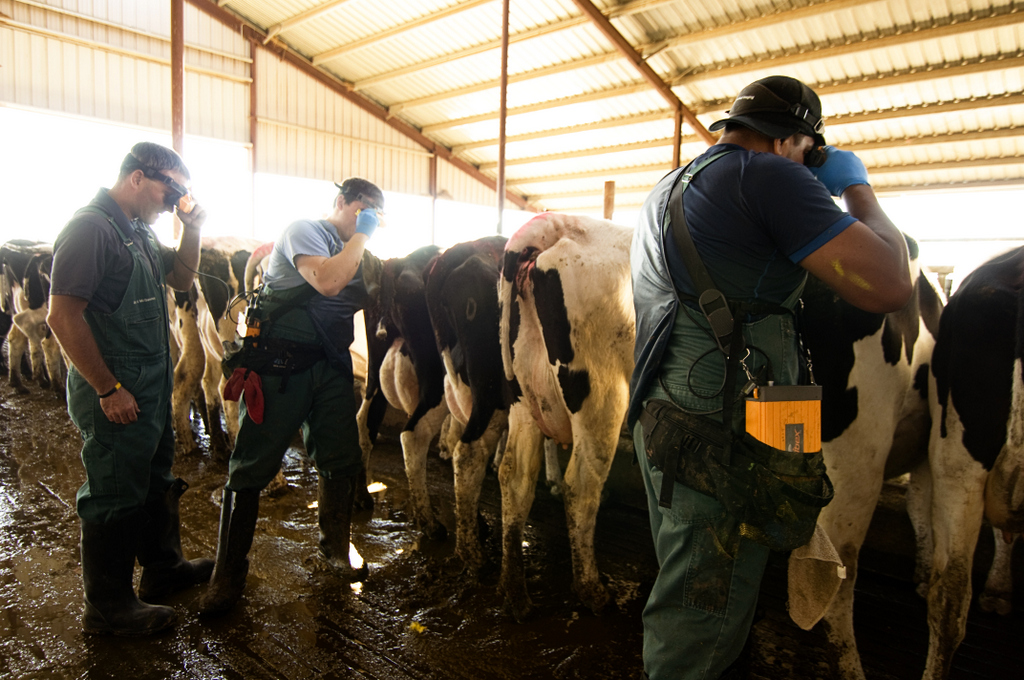Interns and Internships are Vital for Personal Growth and Practice Caseload

In the picture above, Dr Chard looks into the IBEX wireless monitor as intern learns to fetal age bovine with the IBEX Lite.
By: Susan Hoffman
Internships provide additional education and experience for recent veterinary graduates before they enter private practice or a residency program. For practices, interns are valued additions to the staff, assisting with everything from critical patient care to day-to-day clinic operations.
In this first of a two-part blog, we’ll look at internships from the intern’s point-of-view. Read these candid opinions to see if they affect how you look at interns and internships.
E. I. Medical Imaging: Why did you pursue an internship?
Kim Haig – I decided to go the internship route in order to get more hands-on clinical experience rather than jump right into practice. As a student, I thought we didn’t get a lot of hands-on experience during clinicals, so this was a logical step.
Elizabeth Dryburgh – I thought an equine internship would be the best way to get a large amount of hands on experience while having a wide variety of mentors available. It also helps develop skills in a controlled environment.
Erika Wierman – I felt an internship was a very important precursor to quality equine practice. Putting off earning a higher salary immediately out of school was well worth the experience I gained. I also gained confidence by practicing under the supervision of well-respected, well-established practitioners to become as proficient as possible as a new doctor.
E. I. Medical Imaging: How did you choose your practice?
Kim Haig – My mentor in veterinary school set me up with one of his previous graduates who had a private practice. He thought it would be a good fit for me.
Elizabeth Dryburgh – I had done multiple externships and visited many practices. I chose Randwick Equine Centre in Sydney, Australia, because it had a good balance of ambulatory and surgical, and they allowed interns to do a tremendous amount of hands on work. A benefit to interning abroad was observing the different ways practices did things and it allowed me to meet vets from all over the world.
Erika Wierman – Caseload was of the utmost importance to me. I knew a large referral practice in the heart of horse country would provide the greatest exposure to the most varied and interesting cases. My one year internship at Rood & Riddle in Kentucky was worth five years of experience in private practice elsewhere. I had the opportunity to work with all the specialists at the top of their field within one practice.

E. I. Medical Imaging: What is your advice for other recent graduates for picking the “right” internship?
Kim Haig – Be sure to visit the practice or at least interview with your potential boss. The best piece of advice I received when shopping around was that YOU are interviewing them as much as they are interviewing you!
Elizabeth Dryburgh – Visit the practices and make sure they are a right “fit” for you. Think about what you want from your internship. You have one year to get the most out of your experience. Also, once you are in your internship, if what you expected isn’t happening, don’t wait. Go and talk to whoever is in charge of the program and discuss what can be done to improve your experience.
Erika Wierman – Your individual career goals are the most important considerations. If you desire a surgical residency, it would behoove you to pursue an internship at a surgical facility that sees a large and varied caseload and where you can gain the support of successful and well known surgeons who will be valuable to you as you vie for residency positions.

E. I. Medical Imaging: What were the most important skills you learned or acquired during your internship?
Kim Haig – A few weeks into my internship one of the doctors left the practice and I was thrown into an associate’s role. I still had great mentors, but I was not getting the one-on-one time that had originally been detailed in my program. Ultimately, I think this helped me think on my feet and become a better doctor. It was definitely “trial by fire!”
Elizabeth Dryburgh – Handling clients and managing caseloads. We were a large equine clinic that did a lot of racetrack work, and managing trainers is very different than managing someone’s pet. This helped me develop very keen client communication skills that improved my abilities with clients as well as express in the most concise way how to treat a patient.
Erika Wierman – This is where caseload is important. In school, you learn theory and if you’re lucky you get to try your hand at a few things, but in an internship, repetition is what teaches you to be proficient. My internship enabled me to be comfortable with most routine practice skills. In addition, I learned a great deal about client education and communicating with owners, trainers and mangers.
E. I. Medical Imaging: What is the one, best piece of advice or philosophy a mentor provided you with during your internship?
Kim Haig – My mentor told me to “pay it forward” at a family-style Christmas dinner. He was told this by his mentor when he was a young doctor at a similar dinner, and was asked to do the same when he was in a position of leadership. One day, I plan on having my whole staff come together for the same family-style dinner to thank them for their hard work and to ask them to “pay it forward.”
Elizabeth Dryburgh – You have to do what makes you happy and you have to do it with integrity. There are a lot of things people will try to get you to do that aren’t right, or that you don’t agree with. You just have to believe in yourself enough to stand up to them and not compromise your judgment.
Erika Wierman – Find your niche!
In our next blog, we’ll talk about internships from the practice’s point-of-view.














